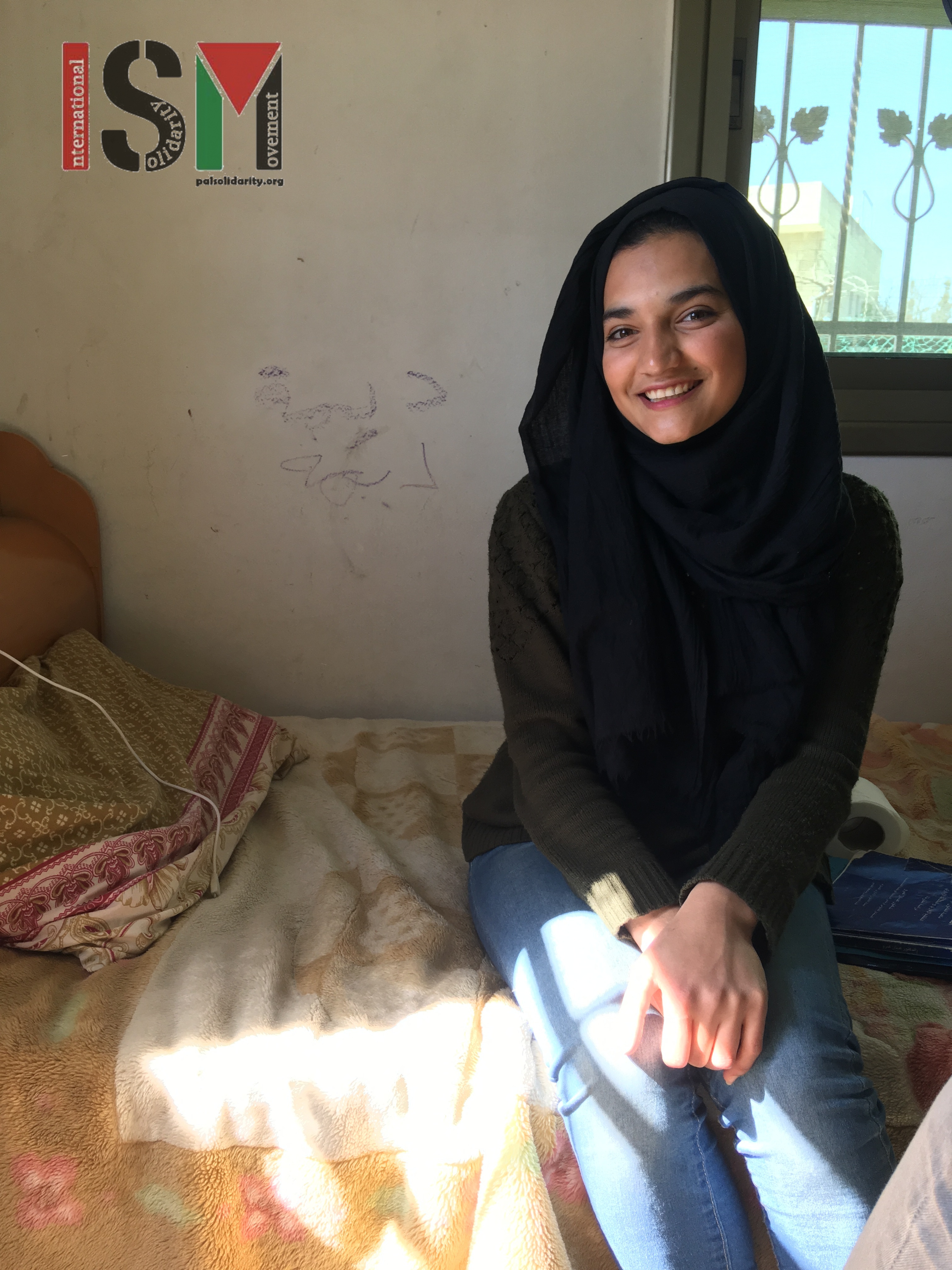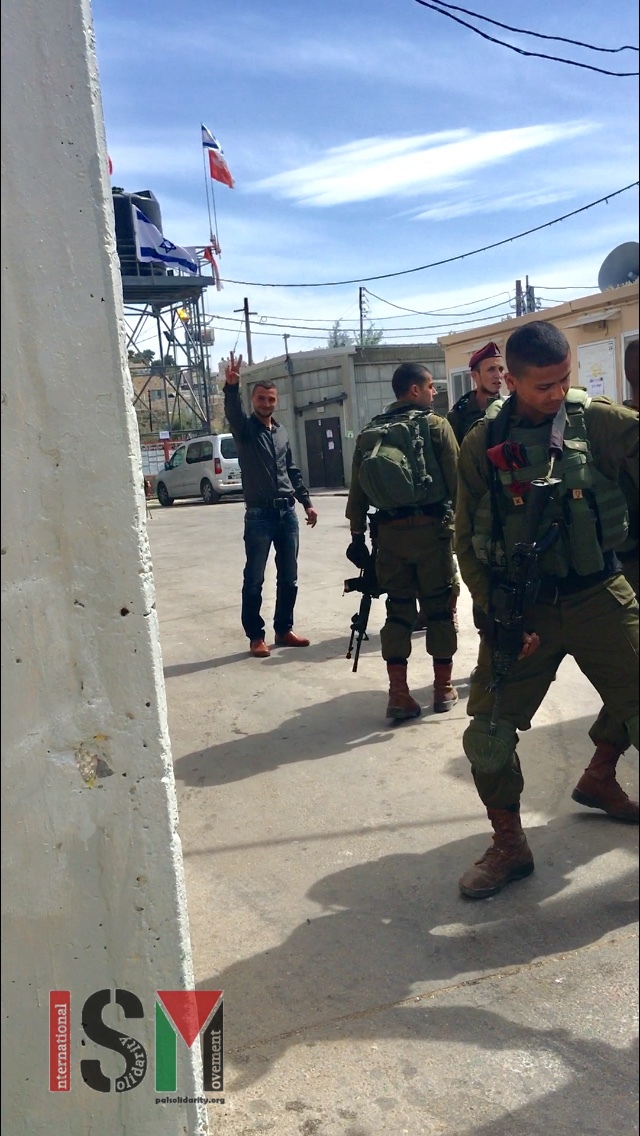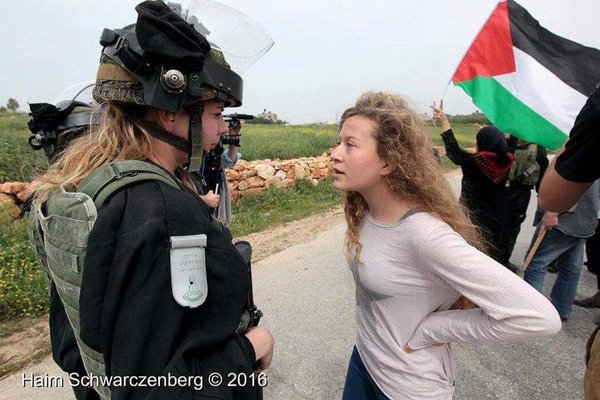Tag: Prisoner
-
A recollection of Dima al-Wawi’s imprisonment and a remembrance of Hamza Zamara
18th March 2018 | International Solidarity Movement, al Khalil team | Occupied Palestine Two years ago Dima al-Wawi woke up for school feeling sick. Her throat hurt and her lymph nodes were swollen. Her parents were already out of the house, on their land that is split in two by the illegal settlement Karmi Zur…
-
Detained and arrested for no reason, Palestinian told it’s his “last chance”
15th March 2018 | International Solidarity Movement, al Khalil team | Occupied Palestine Yesterday, Ayman al Fakhori, age 25, was detained for an hour outside the Ibrahimi Mosque checkpoint before being arrested for no reason and escorted down Shuhada Street into a military base. He was shortly after released and escorted by Israeli forces out…
-
Free Ahed Tamimi!
20th of December 2017 | Samidoun, Palestinian Prisoner Solidarity Network | Occupied Palestine UPDATE: Bassem Tamimi, Ahed’s father, has also been arrested by Israeli occupation forces as he went to the court where his daughter and wife are held. Samidoun are updating the alert below and urge people to join the call to free Ahed and Nariman! UPDATE:…



